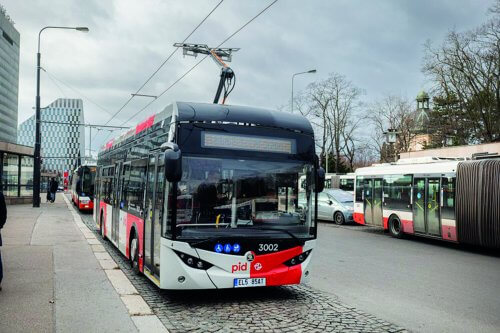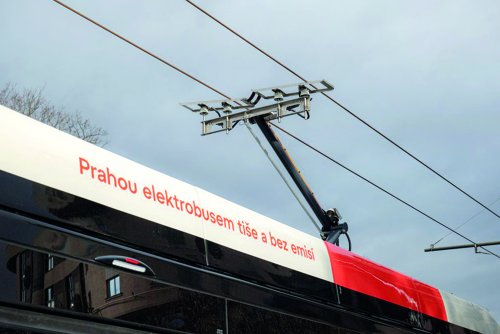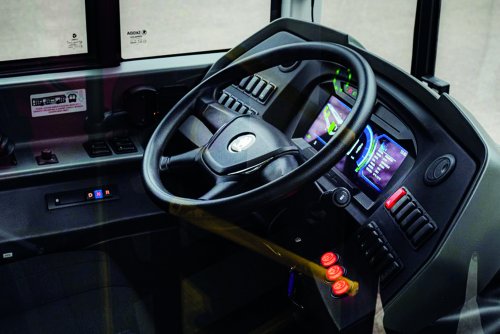
Czeck Republic
Škoda Transportation’s new E’City electric bus has started testing with passengers in Prague. The Czech capital is the first city where the new electric bus has been placed in service, and it will be tested mainly on city routes 124, 154 and 213. Prague’s transport operator DPP has ordered a fleet of 14 vehicles in a contract which could be worth up to CZK207 million (£7.1m) if further options are taken up.
The buses, with 28 seats and a total capacity of 69, will replace older diesel buses, and each electric bus is expected to cover an average of 60,000km per year, saving about 252,000 litres of diesel and producing 714 tonnes less CO2.
“It’s always a special moment when you can ride for the first time on a completely new product that dozens of our people have worked on developing and producing. Moreover, I am glad that it is Prague where passengers will ride on our new electric bus and we will show the trend of development and modernisation of transport together. After all, emission-free vehicles are a key part of modern transport and help to reduce not only the carbon footprint but also the operating costs of the carrier. They make a significant contribution to cleaner air and a more harmonious urban environment,” said Tanya Altmann, Senior Vice President of Bus Mobility Solutions at Škoda Transportation.
“It is almost to the day since we put our first two mini-electric buses into service 12 years ago. It was on line 292. They weren’t very reliable, and after less than two years we took them out of service. Since then, electric bus technology has made a major qualitative leap. Today, we are launching our first own electric bus with a standard 12-metre length, and within a month we will be launching the remaining 13 – the basis of our future electric bus fleet. I firmly believe that they will serve passengers impeccably. But it won’t just be these 14 vehicles. As part of the gradual electrification of bus lines, we plan to purchase up to 100 more electric buses over the next three years, and we will announce a public tender for them later this year,” commented Petr Witowski, Chairman of the Board of Directors and CEO of DPP.
Adam Scheinherr, Deputy Mayor of Prague for Transport and Chairman of the DPP Supervisory Board, added: “We have secured low-floor buses for passengers on all city lines in Prague and today we can mark another important milestone: a 12-metre Škoda E’City electric bus has taken to the streets of Prague. In total, DPP will have 14 of them in its fleet. We will start deploying them all gradually from February. And we are definitely not stopping there. In the next three years we want to buy another 100 electric buses. This year we will launch a public tender. My goal is for DPP to be a flagship among transport companies in the Czech Republic and to use modern 21st century technologies. Prague will become a city where bus services within public transport will be routinely provided by quiet and emission-free vehicles. We are reducing traffic noise in Prague, contributing to the cleaner air we breathe and improve the overall environment. I want Prague to be a welcoming place to live, and the DPP bus fleet will do just that.”
This is the first delivery of electric buses by Škoda Transportation Group, the vehicles having been produced in cooperation with sister company Temsa, which supplied the bodywork to Škoda’s specification. To this, Škoda added electrical equipment including batteries and pantograph. Testing and homologation was then carried out in the firm’s Pilsen factory and its surroundings.
The batteries of the new buses are capable of being charged via the pantograph from the existing tram overhead wires or trolleybus wires planned for future installation, and DPP already has infrastructure for charging prepared at two terminal points. Charging will take 15-30 minutes, with a guaranteed range throughout the life of the 150kW batteries of 100km. Prague will also use advanced energy management from Škoda Transportation Group, which will allow economically effective charging of batteries and extend their life span.
The charging pantograph has a camera for control of position and function, whilst overnight plug-in charging via a CCS-2 connector, will take place at the depot.



